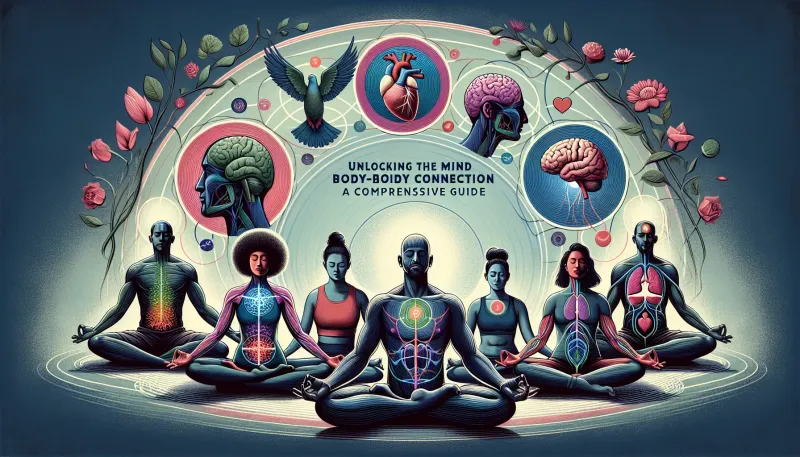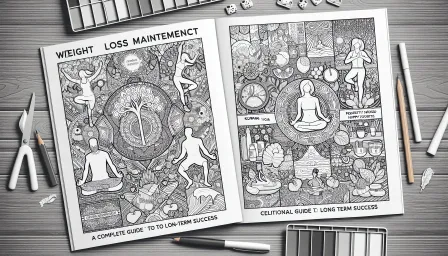Unlocking the Mind-Body Connection and Resilience: A Comprehensive Guide

Discover the powerful insights into the mind-body connection and resilience in this comprehensive guide. Learn how to enhance your mental and physical well-being through proven techniques.
In the fast-paced world we live in, the importance of the mind-body connection and resilience cannot be overstated. The synergistic relationship between our mental and physical states not only influences our overall well-being but also our ability to cope with challenges. This guide delves into the substantial aspects of the mind-body connection and resilience, providing meaningful insights and practical strategies to enhance both.
Understanding the Mind-Body Connection
The mind-body connection refers to the complex interactions between our thoughts, emotions, and bodily functions. Research has consistently shown that our mental state can significantly influence physical health and vice versa. For instance, chronic stress can lead to conditions such as hypertension, digestive issues, and weakened immune response. Conversely, physical activities like exercise can improve mental health by releasing endorphins and reducing symptoms of anxiety and depression.
The Science Behind the Mind-Body Connection
The mind-body connection is supported by a robust body of scientific research. Neurotransmitters and hormones play a crucial role in this interaction. For example, cortisol, often referred to as the stress hormone, can impact various bodily functions when produced in excess due to prolonged stress. Understanding the biochemistry of our brain and body interactions enables us to adopt healthier behaviors.
Resilience: The Key to Mental and Physical Health
Resilience is the ability to bounce back from adversity, stress, and trauma. It is not an innate trait but can be cultivated through mindful practices. Building resilience involves developing mental toughness, emotional stability, and physical adaptability. Resilient individuals tend to have a positive outlook, utilize problem-solving skills effectively, and maintain strong social connections.
Techniques to Enhance the Mind-Body Connection
Mindfulness Meditation
Mindfulness meditation involves focusing on the present moment and observing thoughts and sensations without judgment. This practice can reduce stress levels, improve concentration, and promote emotional regulation. Regular meditation can enhance the mind-body connection by fostering a greater awareness of internal states.
Physical Exercise
Engaging in regular physical activities, such as yoga, running, or dancing, can significantly improve the mind-body connection. Exercise releases endorphins, also known as "feel-good" hormones, which can elevate mood and reduce stress. Moreover, exercise can enhance cognitive function, memory, and overall brain health.
Nutrition
A balanced diet rich in essential nutrients supports both mental and physical health. Omega-3 fatty acids, found in fish and flaxseeds, are known for their brain-boosting properties. Similarly, antioxidants present in fruits and vegetables can mitigate oxidative stress and improve mental clarity.
Strategies to Foster Resilience
Cognitive Behavioral Therapy (CBT)
CBT is an evidence-based approach that helps individuals identify and change negative thought patterns. By restructuring these thoughts, individuals can improve their emotional responses and build resilience against stressors.
Social Support Systems
Strong social connections provide a buffer against stress and adversity. Building a supportive network of family, friends, and community can enhance resilience. Engaging in social activities and seeking support when needed fosters a sense of belonging and security.
Developing a Growth Mindset
Embracing challenges as opportunities for growth rather than threats can enhance resilience. A growth mindset encourages individuals to learn from setbacks and view failure as a stepping stone to success.
Self-Care Practices
Implementing consistent self-care routines is essential for maintaining resilience. This can include activities such as journaling, engaging in hobbies, practicing relaxation techniques like deep breathing exercises, and ensuring adequate sleep.
Conclusion
Unlocking the power of the mind-body connection and resilience involves understanding and nurturing the intricate relationship between our mental and physical health. By adopting practices such as mindfulness meditation, regular exercise, and cognitive behavioral strategies, we can enhance our well-being and develop a robust capacity to navigate life's challenges. Building resilience is not a one-time effort but a continual process of growth and self-awareness. By fostering this connection, we empower ourselves to live healthier, more fulfilling lives.



























